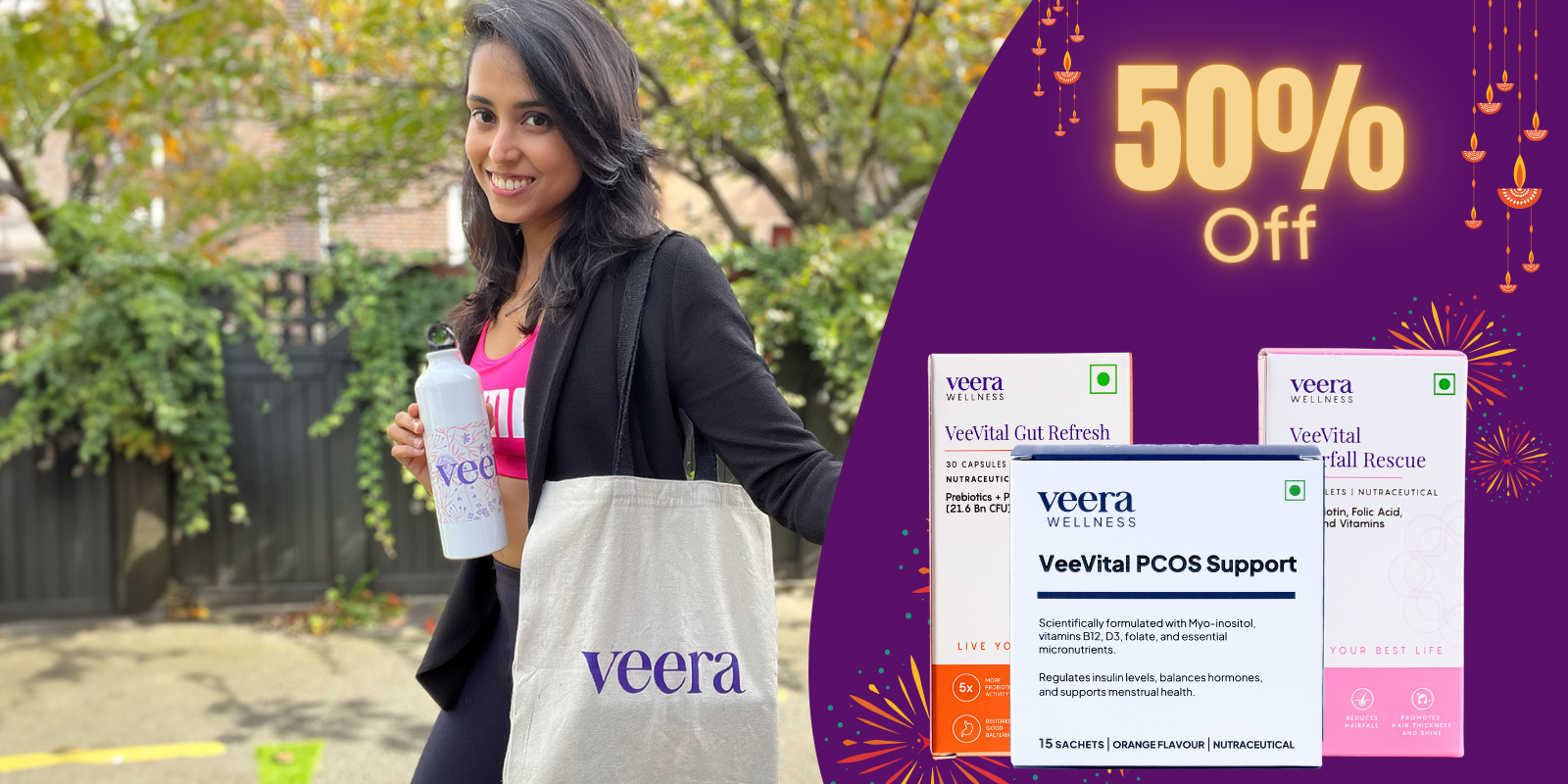Keeping your gut healthy is an essential aspect of PCOS reversal and for that, you need to heal your digestion. Fermented foods provide significant help with digestion and also heal your gut. Fermented foods help increase nutrient absorption and provide a natural source of healthy gut bacteria. But if you have inflammation symptoms you should avoid consuming too much fermented foods.
What are fermented foods?
Fermented foods and beverages have become globally famous in the past few years, earlier they were mostly a part of Asian cultural foods but today they have broken all borders and pleased the taste buds of people all over the world. What makes fermented foods different from normal cooked foods is that they undergo controlled microbial growth and fermentation. In the anaerobic process of fermentation microorganisms like yeast and bacteria break down food components (e.g. sugars such as glucose) into other products. This is the reason why fermented foods have a pungent flavor. Another reason why fermented foods are trending is that they are excellent for your health as they are rich in probiotics. Lactobacilli is a probiotic strain that is very good for your health. It is commonly found in yogurt and naturally lives on the surface of some fermented foods such as vegetables and fruit.
What are the benefits?
1. Provides Beneficial Bacteria
Almost all fermented foods contain good bacteria that have probiotic qualities. These bacteria help restore the bacteria’s balance in your gut, supporting digestive health and alleviating any digestive issues.
2. Making Digestion Easier
The good bacteria in fermented foods help in breaking down the natural sugars and starches in your stomach eventually leading to good and easy digestion. People who have lactose intolerance can consume fermented foods like yogurt, kefir, and cheese as they break down the lactose in milk into simpler sugars like glucose and galactose.
3. Improves Nutrient Availability
When certain foods are fermented their health benefits increase. The vitamins and minerals in the said foods increase in amount and they become more suitable for our bodies to absorb. This is because some natural compounds, like phytic acid found in legumes including soybeans, may inhibit our absorption of nutrients like iron and zinc. When you ferment such foods the anti-nutrients present in them get destroyed, like in the case of sourdough, where the fermentation process increases the mineral availability in it and lowers its glycaemic responses. Also, when fermented foods boost the good bacteria in your gut they produce vitamins B and K in it.
4. Mood Enhancer
Although there is no ample evidence for this statement, studies talking about the connection between gut health and mental health are increasing in number. It is observed that a healthy gut also elevates your mood and fermented foods play a major role in making your gut healthy. Probiotic bacteria like Lactobacillus helveticus and Bifidobacterium longum are commonly found in fermented foods and these bacteria help in improving symptoms of anxiety and depression.
5. Supports Heart Health
Consumption of fermented foods daily reduces your blood pressure and keeps your cholesterol in balance, eventually improving your heart health.
6. Supports Immune Function
Various studies have shown that good bacteria produced by fermented foods when it reaches your gut, become useful by reducing upper respiratory infections. Whether this effect is replicated through the inclusion of fermented foods in the diet is not yet known. This in turn improves the immune function of your body.
7. Helps In Weight Loss
Although more research is needed some studies suggest certain strains of beneficial bacteria may aid weight loss and reduce belly fat.
Best fermented foods for PCOS
Yoghurt and kefir
Kefir is a type of fermented dairy product that is made by adding kefir grains, which are a combination of yeast and bacteria, to milk. Kefir helps to improve digestive health and reduce inflammation. This pr also makes your body immune to intestinal infections and helps your body produce anti-inflammatory substances. Kefir also improves bone health. It contains less lactose than milk, the bacteria in the kefir grains help ferment and break down the lactose in the milk. But kefir does contain some lactose, so people with lactose intolerance may be affected adversely by it.
Sauerkraut and kimchi
Thanks to the global popularity of South Korean culture, kimchi is a common term these days and is found in most restaurants and households. This traditional Korean side dish is usually made from fermented cabbage and radish. The fermented vegetables are generally seasoned with salt, sugar, Korean chili powder, Korean chili paste, garlic, ginger and onions. Kimchi fermentation can last somewhere between a couple of days to a couple of weeks. Kimchi is rich in fiber, and protein and contains large amounts of vitamin B6, vitamin C, vitamin K, folate, iron, riboflavin and niacin. The fermentation of this dish increases its shelf life and increases the number of good bacteria present in it. Kimchi helps improve your gastrointestinal health, skin health, heart health and mental health. It also boosts your immune system and reduces inflammation.
Sauerkraut is another fermented food that is made by fermenting foods that contain lactic acid, which gives it its distinctive sour flavor and long shelf life. It is a rich source of sodium, vitamin C, vitamin K1, iron, potassium, copper, folate and manganese. Sauerkraut also contains probiotics and is rich in fiber which makes it an agent to help you lose weight. It also reduces the risk of developing infections such as urinary tract infections and the common cold.
Kombucha
The fermented beverage Kombucha has become quite popular in recent times, it is a form of fizzy tea that has a tart-like flavor. It can be made from both green or black tea and offers these drinks’ potent health-promoting properties. Various test tube studies have shown that kombucha may help induce cancer cell death and prevent the spread of cancer cells. There are many kombucha drinks available in the market today but make sure to check the constituents as most of them are high in added sugar, and others may contain sugar substitutes.
Tempeh and miso
Miso is a Japanese seasoning that is used in almost every Japanese cuisine. It’s made from fermented soybeans combined with salt and koji, a type of fungus. Some studies have shown that consumption of miso-infused dishes can lower the risk of breast cancer and also improve heart health. A 2014 study in rats found that long-term miso soup intake helped normalize blood pressure levels. Despite the numerous health benefits, the high quantities of salt present in miso can be harmful to your health too so it is advised to consume it in lesser quantities and less frequently.
Another food item made from fermented soybeans is Tempeh. In the case of tempeh, the fermented soybeans are pressed into a compact cake. This is a high-protein meat substitute that is firm but chewy. This can be baked, steamed, or sautéed before being added to dishes. Along with probiotic qualities, this fermented food is also high in nutrients. Reviews comprising almost 40 studies noted that eating 25 grams (g) (0.88 oz) of soy protein every day for 6 weeks led to a 3.2% decrease in LDL (bad) cholesterol and a 2.8% decrease in total cholesterol.
Pickles and other fermented vegetables
Pickling and fermentation of vegetables are a part of various cuisines all over the world. It is mostly done to increase the shelf life of the vegetables. Even though both pickled and fermented vegetables sound the same there is a distinct difference between them. It is the process of how they achieve a sour flavor. Pickled foods are sour because they are soaked in an acidic brine. Fermented foods are sour because of a chemical reaction between naturally present sugars and bacteria. Fermentation requires an anaerobic process, which means little to no oxygen is present when fermenting food. This is not a necessity in the case of pickling.
How to incorporate these foods into your diet
1. Sandwiches and Salads
The fermentation process gives sauerkraut a tangy, salty flavor that livens up many dishes. Try adding a few spoonfuls of sauerkraut to sandwiches, or top salads with it for added flavor. Sauerkraut also pairs nicely with avocado toast. Moreover, not all sauerkrauts are the same, some are made via quick pickling rather than fermentation. While pickling imparts a similar astringent flavor, it does not provide the same probiotic benefits as fermentation.
2. Stir-Fry
You can stir-fry tofu and kimchi and add it to your meal. It is a tasty and nutrient-dense way to incorporate a variety of whole, plant-based foods into one meal. Kimchi already contains vegetables like cabbage, radish, onion, garlic, chili peppers, and ginger. So all you have to do is pair it with a simple carb or a protein.
3. Yoghurt Snack
Yogurt, a fermented milk product, has been a staple in the human diet for thousands of years all across the globe. It can serve as a satisfying protein-rich snack. You can pair yogurt with fresh fruits to make a parfait or use it to make a savory dip. There are many ways to incorporate yogurt into your diet. It’s important to note that store-bought yogurts contain a significant amount of added sugar, so it’s always a good idea to make your yogurt at home. If you’re lactose intolerant, lactose-free dairy yogurts are available at many grocery stores.
4. Miso Dishes
Miso soup is a traditional Japanese dish that is made from miso paste. If you have not had a hot bowl of miso soup try it today. And know that it gives a unique salty, umami flavor. In addition to miso soup, you can also use miso paste to make flavourful salad dressings. You can mix it with tahini, lemon juice, tamari, minced garlic and ginger, a dash of pure maple syrup and water to thin.
5. Kefir Smoothies
While kefir is great to drink on its own, it’s particularly well-suited as a probiotic-rich smoothie base. You can add kefir to a smoothie to mellow out the tartness of plain and low-sugar varieties. As a bonus, certain fruits, like slightly ripe bananas, happen to be rich in prebiotic fiber Prebiotic fiber serves as food for the probiotic bacteria found in kefir. By pairing your kefir with banana, you’ll encourage those good bacteria to stick around in your gut.
Learn More With Veera
Even though most fermented foods mentioned above have numerous health benefits it is important to know which food item suits your PCOS symptoms and which doesn’t. The nutritionists at Veera Health know how important it is to follow an individualistic approach when it comes to dieting. Take Veera Health’s intuitive quiz to determine which foods are good for you.




















